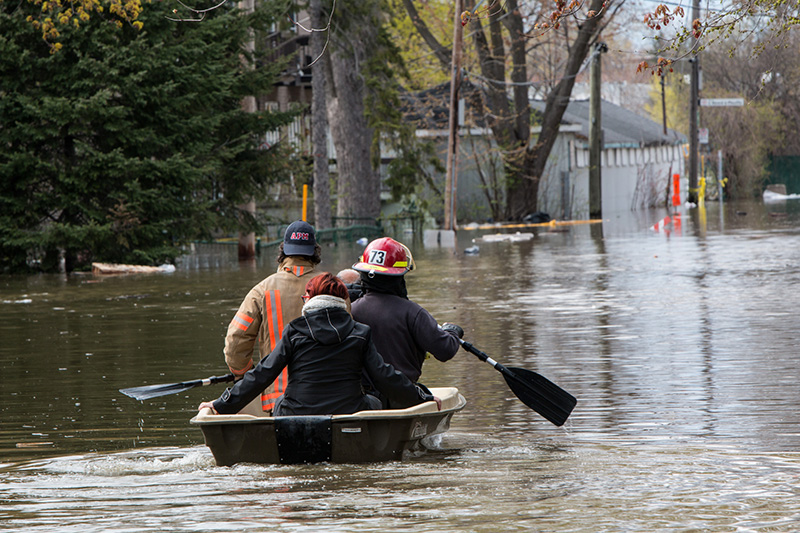Politics and policies of climate induced displacement and vulnerability
How can climate policy further justice?
Principal investigators
Displacement caused by natural disasters and climate change has reached record levels worldwide and is expected to rise significantly over the next decades. Despite this growing crisis, Canada and the international community have made little progress in developing policies to address this urgent reality.
This work package examines the response to climate-induced displacement both in Canada and more broadly.
Our research is focused on issues such as:
- Existing policies and legal frameworks for responding to disaster-induced displacement
- Emerging initiatives to address climate change-driven migration
- Differential vulnerabilities and adaptive capacities of different communities to climate change
- Effects of climate change on the health and working conditions of marginalized populations
Displacement and evacuations forced by climate change produce and amplify pre-existing inequalities and vulnerabilities among affected communities. While state-driven evacuations can be lifesaving, they also pose risks of arbitrary, extended, and harmful relocations, compromising the wellbeing and rights of the displaced. Such dynamics have been documented in Canada, including among displaced First Nations communities, demonstrating the need for further policy development.
We build on and advance the overall objectives of CJV2 by centering questions about policy in Canada and more broadly. Through interviews, surveys, and policy analysis, we are examining how existing policy frameworks shape climate migration and may heighten vulnerability for certain groups.
Case studies
- International norms and principles for addressing climate induced displacement
- Mass evacuations in Canada
- Costal vulnerabilities

